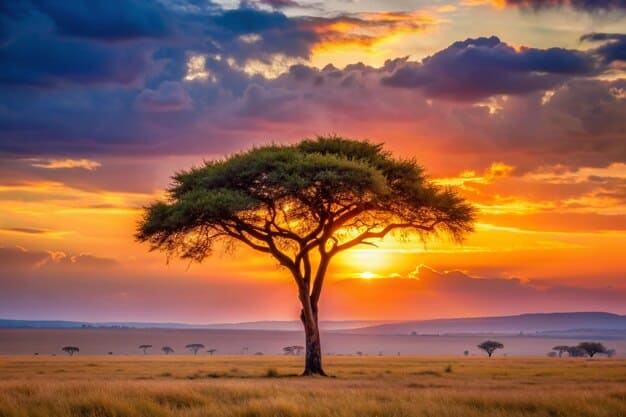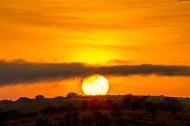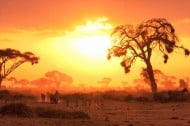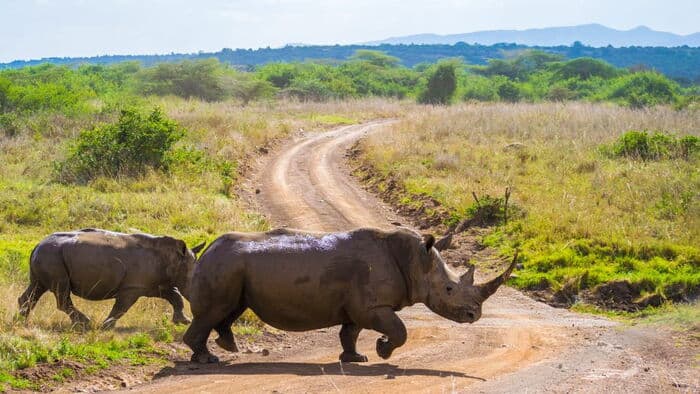
Kenya Safari – What Are the Big 5?
Kenya Safari – What Are the Big 5? Your Ultimate Guide to Africa’s Most Iconic Wildlife
Introduction: Meet Africa’s Big 5 on a Kenya Safari
Kenya, the heart of African wildlife safaris, is famous for one legendary attraction: the Big 5. But what are the Big 5 in Kenya safari? In this comprehensive guide, we’ll explore these magnificent animals, where you can find them, why they matter, and how you can make your dream of witnessing them in the wild a reality.
Whether you’re planning your first African safari or looking to check off a bucket-list wildlife adventure, this article will guide you through the unforgettable journey of discovering Africa’s Big 5 in Kenya.
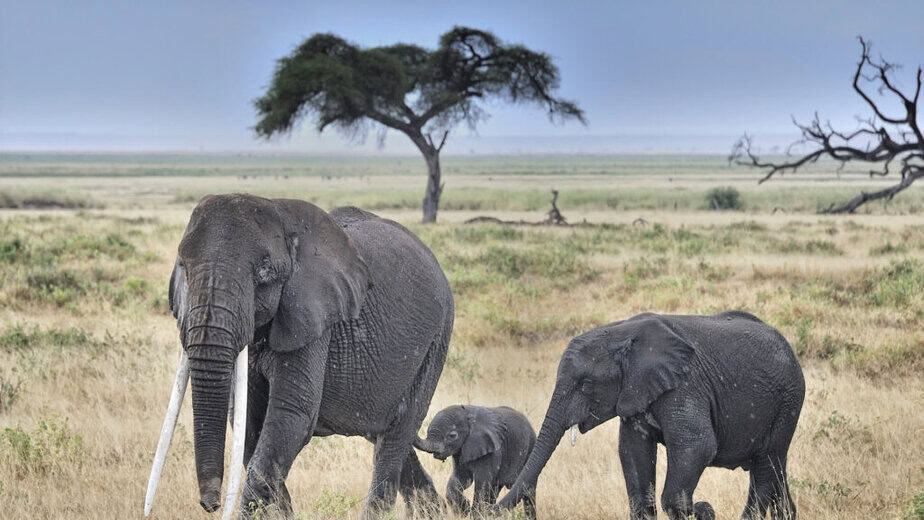
What Are the Big 5?
The term “Big 5” was originally coined by big-game hunters to describe the five most challenging animals to hunt on foot in Africa. Today, they symbolize the continent’s rich biodiversity and are the top wildlife attractions for safari-goers.
The Big 5 include:
- African Elephant
- African Lion
- African Leopard
- African Buffalo
- Rhinoceros
Let’s take an in-depth look at each of these incredible creatures.
1. African Elephant – The Gentle Giant
Scientific Name: Loxodonta africana
IUCN Status: Endangered
Description: The African elephant is the largest land mammal on Earth. Males can weigh up to 6,000 kilograms and stand over 3 meters tall. Known for their intelligence, family bonds, and gentle nature, elephants are a must-see on any Kenyan safari.
Best Places to See Elephants in Kenya:
- Amboseli National Park (renowned for large herds)
- Tsavo National Parks (East and West)
- Samburu National Reserve
Interesting Facts:
- Elephants have strong social structures led by matriarchs.
- They communicate through low-frequency rumbles.
2. African Lion – The King of the Jungle
Scientific Name: Panthera leo
IUCN Status: Vulnerable
Description: Lions are Africa’s top predators and symbols of strength and courage. A male lion’s roar can be heard up to 8 kilometers away. They live in prides consisting of females and cubs led by one or more males.
Best Places to See Lions in Kenya:
- Maasai Mara National Reserve (famous for its big lion prides)
- Tsavo East and Tsavo West
- Meru National Park
Interesting Facts:
- Female lions are the main hunters.
- Males defend the pride’s territory.
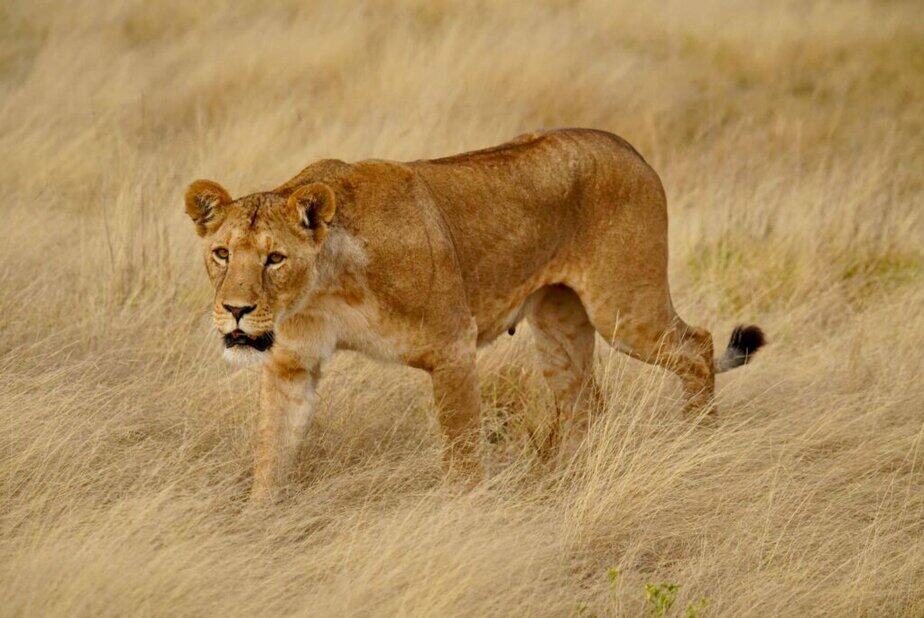
3. African Leopard – The Elusive Beauty
Scientific Name: Panthera pardus
IUCN Status: Vulnerable
Description: Leopards are solitary, elusive, and highly adaptable big cats. Their spotted coats make them excellent at camouflage. They are also strong climbers, often seen lounging in trees.
Best Places to See Leopards in Kenya:
- Laikipia Plateau
- Samburu National Reserve
- Maasai Mara (especially in forested areas)
Interesting Facts:
- Leopards can drag prey heavier than themselves up trees.
- They are active both day and night.
4. African Buffalo – The Fearsome Bovid
Scientific Name: Syncerus caffer
IUCN Status: Least Concern
Description: The African buffalo, or Cape buffalo, is one of the most dangerous of the Big 5 due to its unpredictable nature. Large herds roam savannas and wetlands, making for dramatic safari scenes.
Best Places to See Buffalo in Kenya:
- Maasai Mara
- Amboseli
- Aberdare National Park
Interesting Facts:
- Buffaloes form protective circles against predators.
- They have sharp, curved horns used for defense.
5. Rhinoceros – The Armored Titan
Scientific Name: Ceratotherium simum (White Rhino), Diceros bicornis (Black Rhino)
IUCN Status: Critically Endangered (Black), Near Threatened (White)
Description: Rhinos are massive herbivores with impressive horns. Kenya is one of the best places in Africa to see both black and white rhinos in the wild, thanks to dedicated conservation efforts.
Best Places to See Rhinos in Kenya:
- Ol Pejeta Conservancy (home to the last northern white rhinos)
- Lake Nakuru National Park
- Lewa Wildlife Conservancy
Interesting Facts:
- Rhinos have poor eyesight but excellent hearing and smell.
- They are fiercely territorial.
Why Is the Big 5 So Important?
The Big 5 represents more than just wildlife; they are the heart of Africa’s ecological and cultural identity. They attract millions of tourists annually, providing vital revenue for conservation and local communities. Protecting these animals safeguards entire ecosystems.
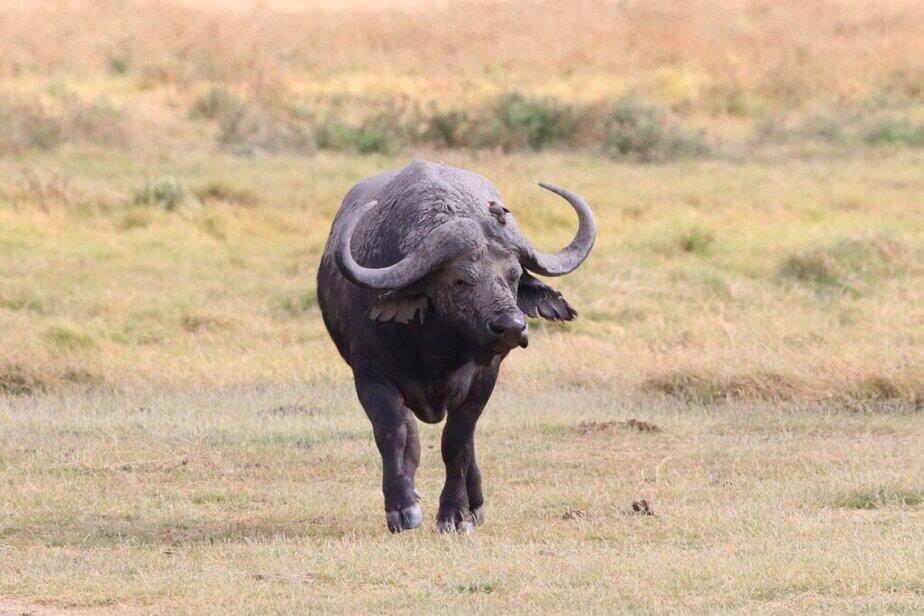
Best Time to See the Big 5 in Kenya
The ideal time to see the Big 5 is during the dry seasons:
- January to March: Excellent for predators and newborn wildlife.
- July to October: Great Migration season in Maasai Mara, best for seeing lions and other predators.
Top Big 5 Safari Destinations in Kenya
- Maasai Mara National Reserve
- Known for lions, leopards, elephants, and buffaloes.
- Best during the Great Migration.
- Amboseli National Park
- Iconic elephant herds with Mt. Kilimanjaro backdrop.
- Samburu National Reserve
- Unique species and frequent leopard sightings.
- Ol Pejeta Conservancy
- Rhino sanctuary with opportunities for walking safaris.
- Tsavo East & West National Parks
- Largest parks with vast landscapes and all Big 5.
Planning Your Big 5 Safari – Tips & Advice
- Book with reputable tour operators like African Sermon Safaris for expert guides.
- Choose lodges close to Big 5 territories.
- Combine multiple parks for the best chance to see all Big 5.
- Consider private conservancies for exclusive viewing.
The Role of Conservation in Protecting the Big 5
Conservation efforts in Kenya, including anti-poaching patrols, community-based tourism, and wildlife corridors, are crucial to ensuring the survival of the Big 5 for future generations.
Support these efforts by visiting certified eco-lodges and responsible safari operators.
Conclusion: Experience the Big 5 Safari Adventure of a Lifetime
A Kenya safari offering a glimpse of the Big 5 is more than a vacation—it’s a transformative journey into the wild beauty of Africa. Whether you dream of watching elephants against Kilimanjaro’s snow peaks or spotting a leopard in a Mara fig tree, your Big 5 safari promises lifelong memories.
Ready to plan your unforgettable Kenya Big 5 Safari?
Book your adventure now with African Sermon Safaris and make your African dream come true!
